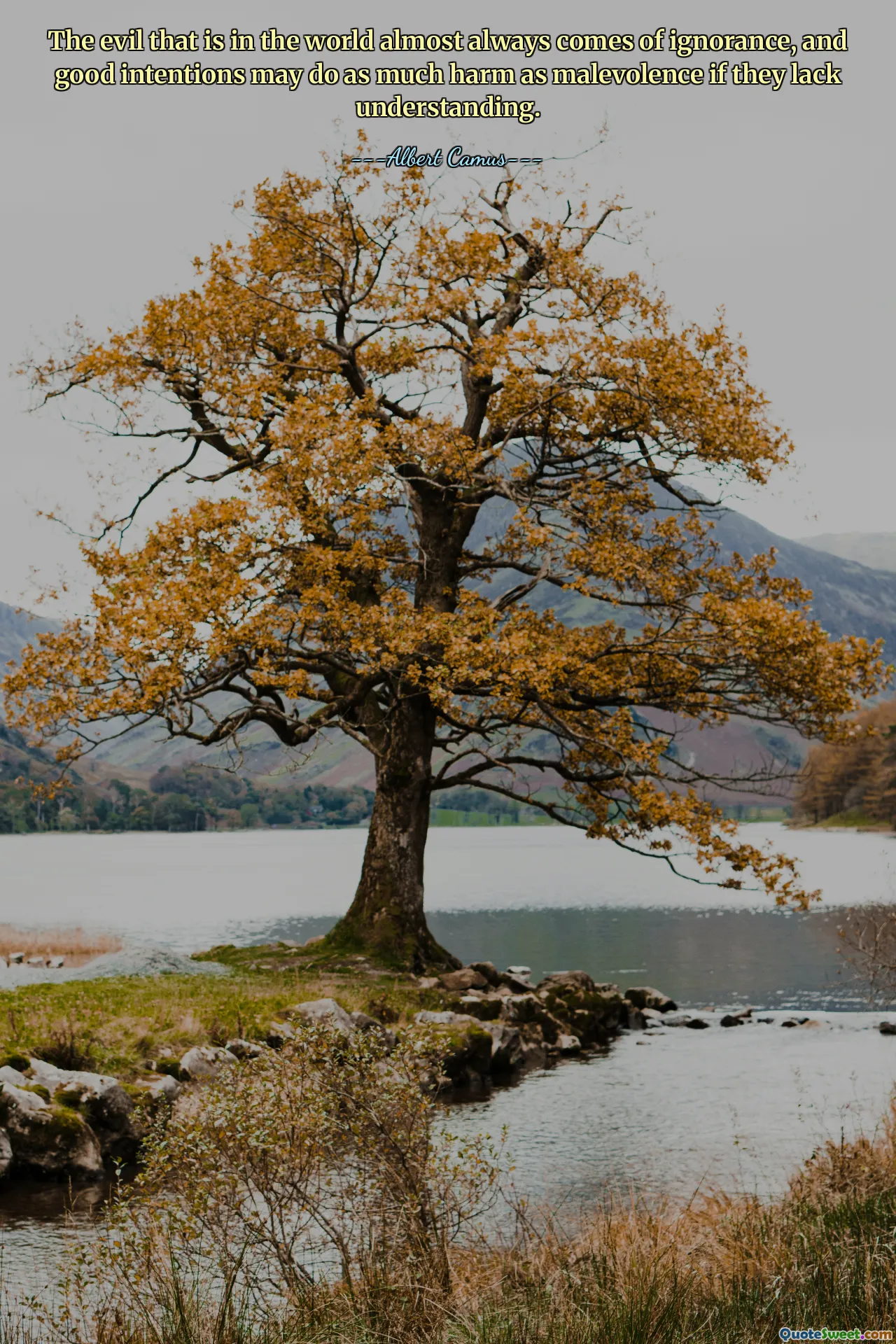
The evil that is in the world almost always comes of ignorance, and good intentions may do as much harm as malevolence if they lack understanding.
This quote highlights a profound truth about human nature and society: much of the suffering and conflict stems from ignorance rather than malice. When individuals or groups lack understanding, they are more likely to act in ways that inadvertently cause harm. Good intentions, often driven by hope and moral conviction, can have unintended negative consequences when not accompanied by proper knowledge or awareness. This emphasizes the importance of education, empathy, and critical thinking. It suggests that fostering understanding and reducing ignorance should be fundamental goals, as these efforts can prevent many misdeeds and suffering. The quote also serves as a reminder that appearances can be deceiving; actions motivated by kindness may result in harm if the actor misjudges the situation or lacks sufficient insight. Recognizing the limitations of our knowledge and seeking to educate ourselves and others become essential steps toward creating a more compassionate and just world. It challenges us to reflect on our own motives and understanding before judging others or taking action. Ultimately, the quote underscores the power of awareness and the need for humility in our endeavors to do good, acknowledging that true progress requires continuous learning and open-mindedness.







